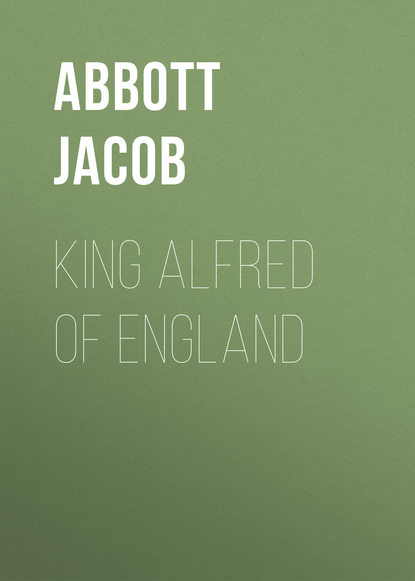 Полная версия
Полная версияKing Alfred of England
5
(Old English font is available here: [http://www.] uk-genealogy.org.uk/resources/).]
6
"Here rests the body of Ethelred, king of West Saxony, the Martyr, who died by the hands of the pagan Danes, in the year of our Lord 871."]
7
For an account of Henrietta's adventures and sufferings at Exeter, see the History of Charles II., chap. iii]
8
The name is spelled variously, Ethelney, Æthelney, Ethelingay, &c. It was in Somersetshire, between the rivers Thone and Parrot.]
9
As this incident has been so famous, it may amuse the reader to peruse the different accounts which are given of it in the most ancient records which now remain. They were written in Latin and in Saxon, and, of course, as given here, they are translations. The discrepancies which the reader will observe in the details illustrate well the uncertainty which pertains to all historical accounts that go back to so early an age.
"He led an unquiet life there, at his cow-herd's. It happened that, on a certain day, the rustic wife of the man prepared to bake her bread. The king, sitting then near the hearth, was making ready his bow and arrows, and other warlike implements, when the ill-tempered woman beheld the loaves burning at the fire. She ran hastily and removed them, scolding at the king, and exclaiming, 'You man! you will not turn the bread you see burning, but you will be very glad to eat it when it is done!' This unlucky woman little thought she was addressing the King Alfred."
In a certain Saxon history the story is told thus:
"He took shelter in a swain's house, and also him and his evil wife diligently served. It happened that, on one day, the swain's wife heated her oven, and the king sat by it warming himself by the fire. She knew not then that he was the king. Then the evil woman was excited, and spoke to the king with an angry mind. 'Turn thou these loaves, that they burn not, for I see daily that thou art a great eater!' He soon obeyed this evil woman because she would scold. He then, the good king, with great anxiety and sighing, called to his Lord, imploring his pity."
The following account is from a Latin life of St. Neot, which still exists in manuscript, and is of great antiquity:
"Alfred, a fugitive, and exiled from his people, came by chance and entered the house of a poor herdsman, and there remained some days concealed, poor and unknown.
"It happened that, on the Sabbath day, the herdsman, as usual, led his cattle to their accustomed pastures, and the king remained alone in the cottage with the man's wife. She, as necessity required, placed a few loaves, which some call loudas, on a pan, with fire underneath, to be baked for her husband's repast and her own, on his return.
"While she was necessarily busied, like peasants, on other offices, she went anxious to the fire, and found the bread burning on the other side. She immediately assailed the king with reproaches. 'Why, man! do you sit thinking there, and are too proud to turn the bread? Whatever be your family, with your manners and sloth, what trust can be put in you hereafter? If you were even a nobleman, you will be glad to eat the bread which you neglect to attend to.' The king, though stung by her upbraidings, yet heard her with patience and mildness, and, roused by her scolding, took care to bake her bread thereafter as she wished."
There is one remaining account, which is as follows:
"It happened that the herdsman one day, as usual, led his swine to their accustomed pasture, and the king remained at home alone with the wife. She placed her bread under the ashes of the fire to bake, and was employed in other business when she saw the loaves burning, and said to the king in her rage, 'You will not turn the bread you see burning, though you will be very glad to eat it when done!' The king, with a submitting countenance, though vexed at her upbraidings not only turned the bread, but gave them to the woman well baked and unbroken."
It is obvious, from the character of these several accounts that each writer, taking the substantial fact as the groundwork of his story, has added such details and chosen such expressions for the housewife's reproaches as suited his own individual fancy. We find, unfortunately for the truth and trustworthiness of history, that this is almost always the case, when independent and original accounts of past transactions, whether great or small, are compared. The gravest historians, as well as the lightest story tellers, frame their narrations for effect, and the tendency in all ages to shape and fashion the narrative with a view to the particular effect designed by the individual narrator to be produced has been found entirely irresistible. It is necessary to compare, with great diligence and careful scrutiny, a great many different accounts, in order to learn how little there is to be exactly and confidently believed.]
10
Spelled sometimes Godrun, Gutrum, Gythram, and in various other ways.]
11
Some think that this place is the modern Leigh; others, that it was Highley; either of which names might have been deduced from Æcglea.]
12
Pronounced Oolf]
13
Spelled sometimes Herald.]

